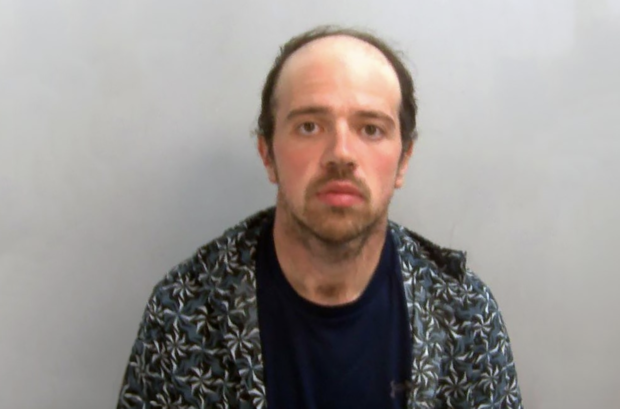The defendant was convicted by unanimous verdict of the jury on a third day of deliberations and is to be sentenced on Friday.

Stephen Baxter, 61, and his wife Carol, 64, were found dead at their home in West Mersea, Essex, in April 2023.
Luke D’Wit, 34, used fake identities to manipulate the couple before he laced their medication with the drug, a trial at Chelmsford Crown Court heard.
D’Wit, from West Mersea, will serve at least 37 years of a life sentence.
Det Supt Rob Kirby, the head of major crime at Essex Police, said he had “absolutely no doubt” that D’Wit would have committed further murders had he not been caught.

The trial heard D’Wit secretly laced the Baxters’ medication with fentanyl and made sure they consumed it when he visited their house in Victory Road on 7 April 2023.
Mr and Mrs Baxter’s daughter, Ellie, found her parents dead in their conservatory when she visited two days later on Easter Sunday.
D’Wit arrived soon after and described himself as a “friend” to a 999 call handler, before calmly giving a false account as Miss Baxter was heard in distress in the background.
Reading her victim impact statement at Chelmsford Crown Court, Miss Baxter described D’Wit as a “man so manipulative he hacked his way into our lives over a decade ago, schemed and thoroughly planned my parents’ demise”.
She said her parents had “looked after Luke”, adding: “They just decided he was lonely, especially after Luke’s dad died. They took him under their wing and would let him join in.”
Describing the moment she found them dead, she said: “I have never known an emotional pain to physically hurt so much.
“It was like my insides were on fire. I screamed and I screamed.”

He said the defendant was “one of the most dangerous men” he had seen during his policing career.
The defendant first met the Baxters between 2012 and 2013 after he was asked to build a website for their shower mat company, Cazsplash.
The court heard the day after they were found dead, D’Wit rewrote their will so he could seize control of the business.
Tracy Ayling KC, prosecuting, said the murders were the culmination of years of manipulation by D’Wit, mostly focused on Mrs Baxter but also – at times – her daughter.
Mrs Baxter had befriended D’Wit through the business and trusted him to help her manage her thyroid condition, Hashimoto’s disease.
‘Desperate’
The jury was told D’Wit had 80 electronic devices and some of them had been used to create more than 20 false personas “to manipulate” Mrs Baxter.
D’Wit posed as a doctor on one of the devices and offered her advice “with no clinical basis”, while also pretending to be fellow Hashimoto’s sufferers. the court heard.
Miss Baxter, 22, told the trial: “There was just this set of rules we had to follow.
“I think mum got a bit desperate and she got to a point where she would do anything to get better.”
However, Miss Baxter said her parents had become “irritated” that D’Wit was so frequently at their house in the months leading up to their deaths and they thought the computer science graduate was “nerdy weird”.

Ms Ayling said D’Wit had photos on his phone of Mr and Mrs Baxter dead in their armchairs when it was seized by the police.
They were taken by the defendant who had installed a “mobile security surveillance application” on the device, she said.
This allowed him to monitor a camera from another device where, at some point between Good Friday and Easter Sunday, he was “watching them die”, the prosecutor added.

During the trial, D’Wit gave evidence from a wheelchair, which Ms Ayling alleged was an effort to attract sympathy from the jury.
She said following his arrest, a bag containing both opened and unopened fentanyl patches was found at D’Wit’s home, which he shared with his mother.
“There can only be one purpose for having these and that’s to fool someone into believing they were taking a proper dose when they were actually taking four times the amount,” Ms Ayling added.
Metal tacks, which police believe were the same ones found during a scan of Mrs Baxter’s stomach when she was alive, were also discovered in the bag.

Toxicology reports later showed fentanyl was a factor in both deaths, with carbon monoxide poisoning quickly ruled out and no evidence to suggest either death had been caused by the couple themselves.
During his defence, D’Wit claimed the fake personalities messaging Mrs Baxter were Stephen Baxter’s idea.
The defendant said: “The actual mechanics was me, but it was instructions from Stephen.”
D’Wit denied there was a “sinister” motive for the false identities, and said they were used by Mr Baxter to improve his wife’s health and their relationship.
![]()

